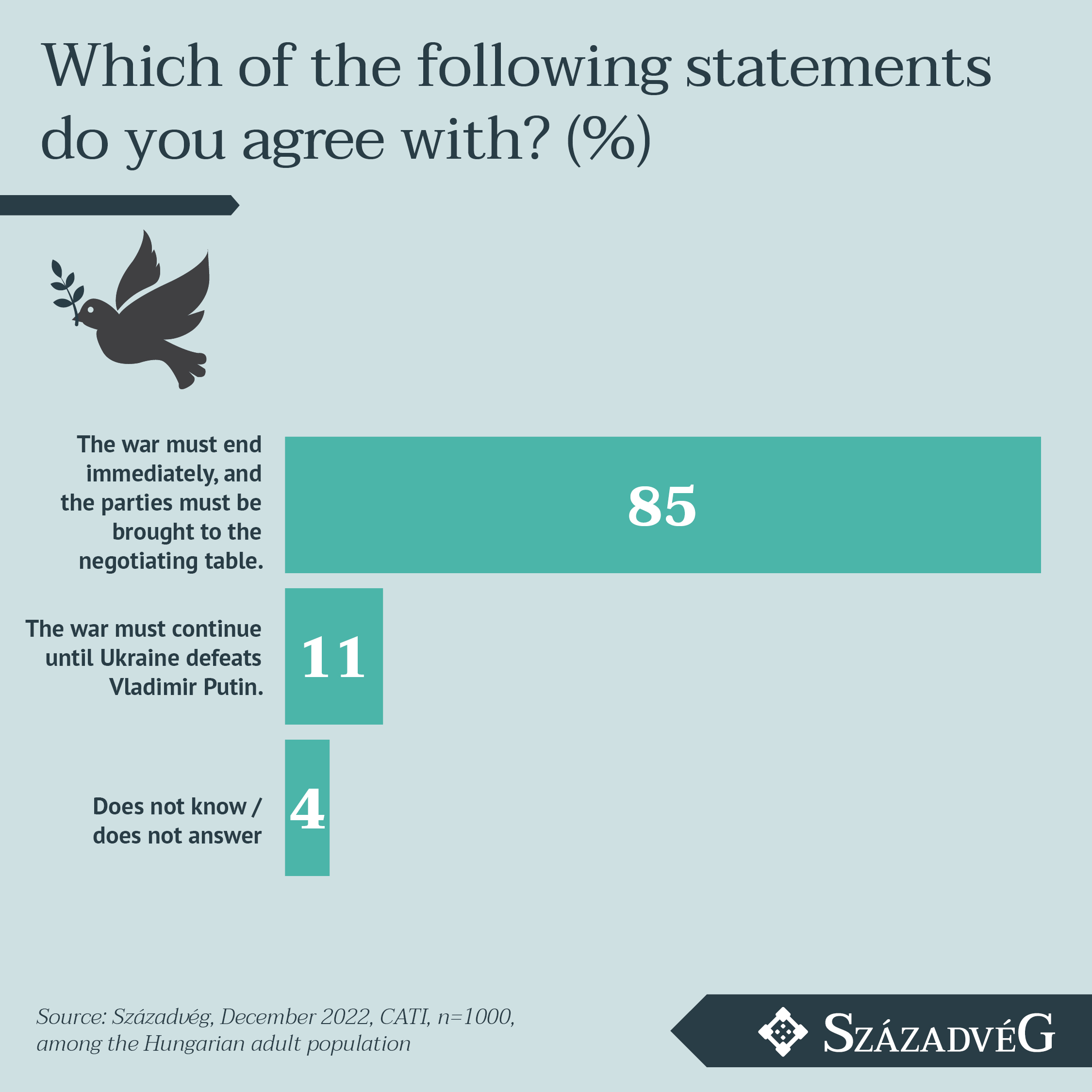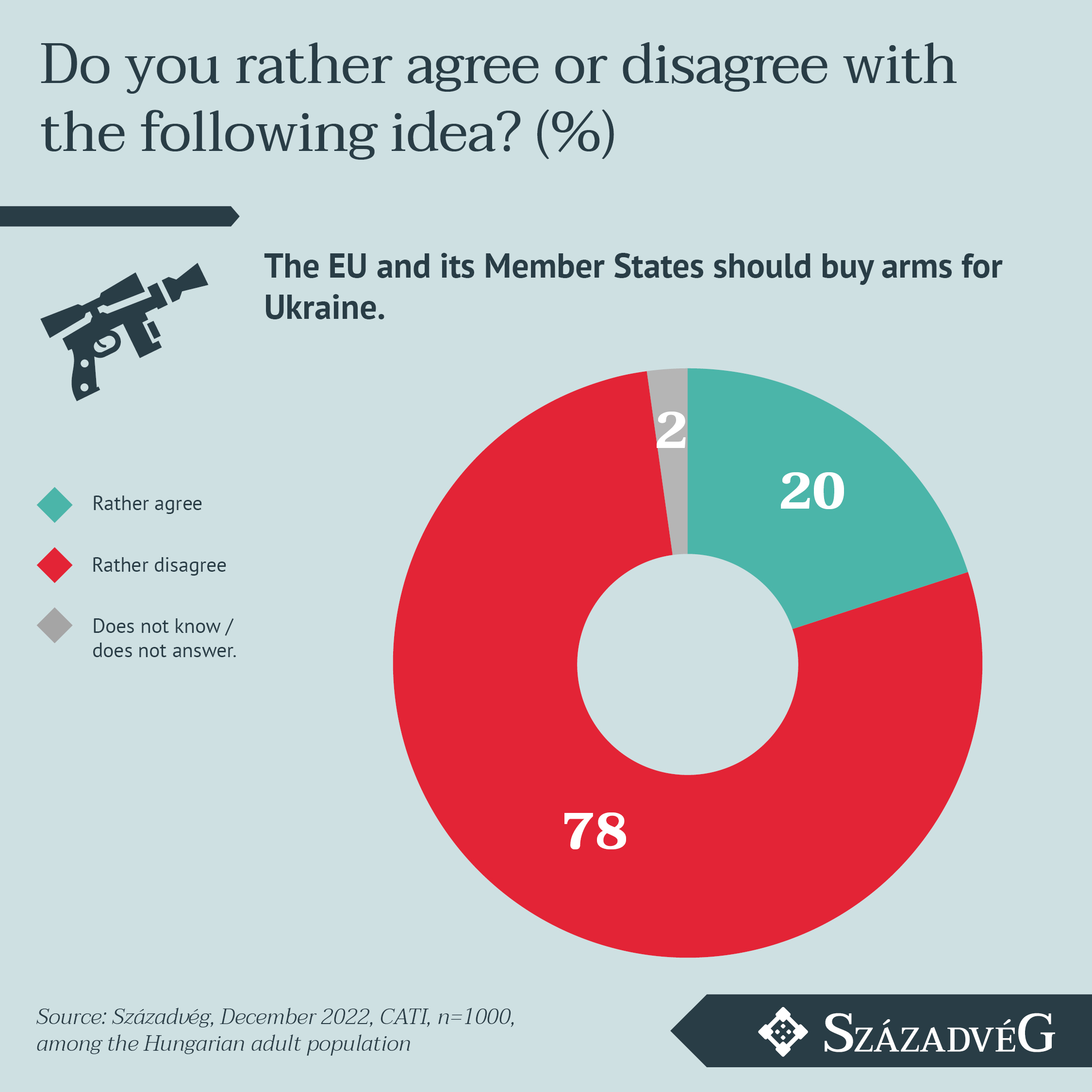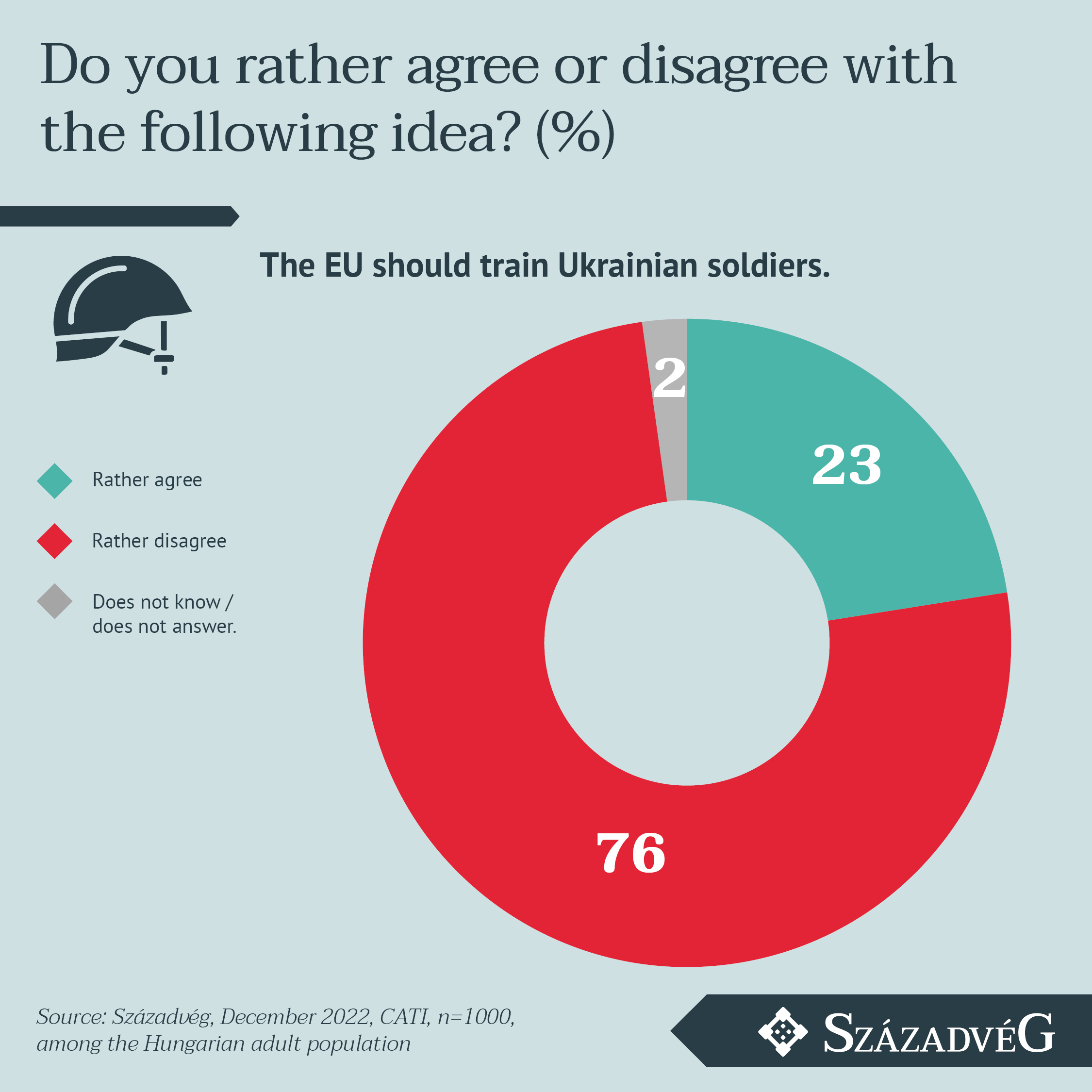The population of Budapest is committed to making peace as soon as possible
As an introduction, it is important to note that the perception of leading politicians committed to continuing the armed conflict – similarly to national trends – presents a negative image among the population of Budapest. Eighty-two percent of those surveyed in the capital had an unfavourable opinion of Russian President Vladimir Putin, while 57 percent formed a negative opinion of U.S. President Joe Biden. The camp of those who have an unfavourable opinion of Volodymyr Zelensky is estimated at 52 percent. The pro-peace stance of the people of Budapest and their commitment to finding a compromise over the Russian-Ukrainian crisis cannot be questioned. The research reveals that
85 percent of the people in the capital would immediately end the Russian-Ukrainian war and bring the parties to the negotiating table.
In addition,
more than three-quarters (78 percent) of the respondents oppose the European Union and its Member States buying arms for Ukraine, and 76 percent disagree with the European Union training Ukrainian soldiers.
The results are based on the fact that the citizens of Budapest do not support the steps that promote the escalation of the war conflict instead of making peace.
The opposition to pro-war politics can be traced back, among other things, to the fact that two-thirds (66 percent) of the residents of Budapest believe that neither side can emerge victorious from the Russian-Ukrainian conflict in the end.
The citizens of the capital say no to left-wing sanctions and pro-war policies
The introduction of new punitive measures against Russia is not supported by the majority of the citizens of Budapest. According to the survey,
63 percent of those surveyed in the capital believe that the sanctions imposed so far are already excessive or just enough.
In addition, 65 percent of the respondents in Budapest are opposed to Hungarian taxpayers’ money being used to finance Ukraine, and 66 percent believe that Brussels is acting unfairly by paying EU funds rightfully due to Poles and Hungarians to a non-EU country. It is also important to emphasize that
the majority (56 percent) of the citizens in the capital agree with the way Prime Minister Viktor Orbán has so far handled the situation arising from the Russian-Ukrainian crisis.
It is worth noting that in the spring of 2022, the six-party left-wing coalition used pro-war political rhetoric in the campaign for the parliamentary elections. The candidate for prime minister of the left-liberal forces, Péter Márki-Zay, believed, among other things, that “Ukraine is fighting our war”, while Ferenc Gyurcsány’s former minister of defence, Ferenc Juhász, had already complained before the outbreak of the armed conflict that Hungary would not send ammunition to Ukraine. In the light of the above, it can be summed up that
Gergely Karácsony continues the sanction rhetoric started earlier by his allies and does not represent the pro-peace views of the citizens of Budapest.
Karácsony has already stood up for the left-wing bloc’s pro-sanctions views. While talking to “pseudo-Klitschko” in the summer of 2022, the mayor stated that “the Hungarian government is on the wrong side in this conflict and it was very difficult to get the sanctions through”, but he was pleased that “this package was finally adopted”.
CATI method, n=1000, among the adult population of Budapest, data collection: December 2022



